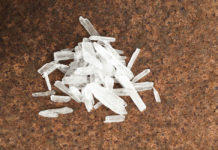Should Someone Stop Drug Addiction Without Rehab?
Making the choice to confront and overcome an addiction to drugs and alcohol takes courage. Even acknowledging the need to quit before there’s a problem is a step in the right direction. The very next question is how to proceed and have a successful recovery. Many facing this challenge will wonder if they can stop drug addiction without rehab.
It’s easy to feel isolated during a trying time. So, it’s important to understand that you’re not alone.
More than 21 million people, aged 12 and older, in the United States needed treatment for a substance use disorder in 2018, but less than 4 million people received the help they needed [1], and these numbers are likely under reported.
Managing a healthy recovery from drug or alcohol addiction can be incredibly difficult. It may be even harder without the support of professionals or caring loved ones. After all, “…drug addiction is a complex disease, and quitting usually takes more than good intentions or a strong will.” [2]
There are some serious mental and physical health issues that anyone attempting to stop addiction without rehab need to consider.
Addiction and Mental Health
Addiction combined with a mental health disorder, such as depression or anxiety, is called a co-occurring disorder.
People develop both mental health disorders and addiction issues for a number of different reasons. With each condition, genetics, family history and environment play a role.
However, it can be difficult to know which disorder came first. This is because chronic substance abuse actually alters the brain’s chemical makeup and can lead to mental health problems. In reverse, symptoms of a psychiatric disorder can be the reason a person self-medicates with drugs and alcohol.
Regardless of which condition came first, each disorder only worsens the symptoms of the other. If either of them are left untreated, it makes a full recovery from substance abuse and addiction unlikely.
In the case of co-occurring disorders, an integrated strategy to treatment, one that addresses both the substance use disorder and the underlying mental health condition at the same time, is the recommended approach for recovery.[3]

What About Withdrawal and Detox from Substance Abuse?
Another issue that can make beating addiction without rehab difficult is the physical withdrawal. There are potentially dangerous detox symptoms that can come with physical dependence to some drugs and alcohol.
Withdrawal is the physical and mental reaction to drug-related toxins leaving the body. This is common with drugs like heroin, prescription painkillers, alcohol and other addictive drugs.
These symptoms can be incredibly painful and are very often the reason that even a person desperate to kick their addiction continues to relapse. Without a medically supervised withdrawal and detox, many people find it impossible to completely stop addiction without rehab.
In fact, going “cold turkey” from drugs like alcohol, opiates and benzodiazepines is not suggested without medical supervision because of the possible serious side effects to a person’s health.
Even if a person doesn’t believe that they are in the advanced stages of addiction, they should definitely consult with a physician before attempting to detox on their own.
Drug Addiction Treatment Without Rehab
Non-Rehab Options for Drug and Alcohol Addiction
There are non-rehab support groups for addiction, organizations like Alcoholics Anonymous (AA) and Narcotics Anonymous (NA) that are based on the 12-step model to recovery.
Fortunately, there are 12-step support groups in most communities around the country. The meetings generally last an hour and provide a community of like minded people working to stay sober, while supporting each other’s sobriety as well.
It is important to say, however, that 12-support groups are a non-medical approach to addiction recovery and there are no withdrawal or detox services. Some people really respond to the supportive community, while others may not like the spiritual aspects entwined in the 12-step model.
There are some alternatives to 12-step programs that are secular in their approach to overcoming addiction, like SMART Recovery[4].
Support groups can be incredibly useful, especially for establishing new relationships. They can actually bolster a person’s recovery. These groups are not necessarily considered an effective replacement for addiction treatment, though.
Individual Counseling and Talk Therapy
Seeking out a professional, licensed therapist is never a bad option when working toward addiction recovery. This can be particularly true for people who may not realize they’re suffering from undiagnosed depression or another co-occurring disorder that is potentially driving their addictive behaviors.
Counseling is also an excellent way to examine, dissect and eventually heal from past trauma that may have ultimately been a factor in developing a substance use disorder.
It should not come as a surprise, though, if a therapist suggests addiction rehab as the best plan for recovery. This will very likely be the suggestion if a person trying to get sober without rehab continues to struggle with relapse.

Skipping Rehab Makes Complete Sense…Right?
Drug or alcohol addiction can happen to anybody. Feelings of guilt and shame need to be tossed aside. Focus on healing and recovery.
It makes complete sense that someone would want to stop drug addiction without rehab. Maybe they don’t feel like they can miss work. They might believe others will hold their substance use disorder against them. They may have even been to rehab once before and find themselves in the same exact spot again.
The advantages of professional addiction rehab is that there are numerous options for the kind of treatment a person receives. Inpatient treatment provides a safe and comfortable space, away from potentially toxic environments that make recovery harder. Outpatient programs can be useful for those who need greater flexibility.
In either situation, a team of professionals is helping to support and deliver a recovery strategy designed for the particular challenges each individual faces.
It’s okay to feel overwhelmed. Recovering from addiction is hard and nobody should have to do it alone.
Sources
[1] Substance Abuse and Mental Health Services Administration’s 2018 National Survey on Drug Use and Health
[2] “Addiction Science” – National Institute on Drug Abuse
[3] “Co-occurring Disorders” – Psychology Today
















